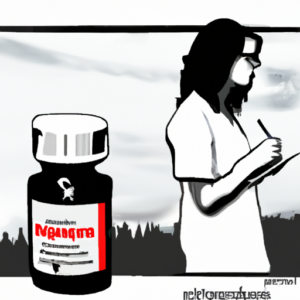A Deeper Dive into the Canadian Opioid Crisis: Spotlight on a Washington Nurse’s Legal Battle
My duty as your correspondent on all matters related to the opioid crisis takes me today to a shocking case emblematic of the epidemic’s far-reaching consequences. As reported by Yahoo Finance Canada, a Washington nurse faces a decade-long prison sentence, being implicated indirectly in an illicit opioid distribution network. You can find all the details here.
The Case in Question
The nurse’s involvement, as explained by the prosecuting authorities, centers on her provision of prescription opioid drugs without ensuring proper medical need. As a medical practitioner with access to high-risk opioids, the nurse became part of a larger, countrywide opioid flooding operation. This case is not isolated, but indicative of a growing systemic failure to adequately regulate the use of prescription opioids, thus contributing to the crisis.
Effects of the Opioid Crisis
This case exemplifies how deep the opioid crisis has reached into every facet of modern society—not sparing even healthcare professionals and agitating an increase in criminal activities. Here are a few key points to consider:
- Increased Access to Prescription Opioids: Professionals in the healthcare sector are capable, knowingly or unknowingly, of becoming participants in the distribution chain of illicit opioids.
- Surge in Homelessness: The opioid crisis has propelled an unprecedented rise in homelessness, as addiction often leads to job loss and financial instability.
- Escalation of Crime Rates: An increase in drug-related crimes, including theft and violence, accompanies the opioid crisis. The desperation to obtain opioids often drives individuals into criminal activities.
- Overdose Deaths: The most fatal consequences of the crisis are the increased deaths caused by opioid overdose.
Efforts to Abate the Opioid Crisis
While the opioid crisis is daunting, efforts are being taken to combat and mitigate its effects. There’s an increased emphasis on holding accountable those individuals and corporations who have played a role in propagating the crisis. This nurse’s case is one such indication.
Opioid class action lawsuits have also started gaining traction with the primary aim to bring the pharmaceutical companies to account for their alleged role in the opioid crisis.
Naloxone, an overdose-reversing drug, is being publicized and distributed in increased quantities across the country. Policies are being enacted to grant higher accessibility to Naloxone, in an attempt to decrease overdose-related deaths.
A focus on preventive measures such as regulated prescriptions, advanced practice nursing protocols, and improved public education on opioid usage and disposal is gaining prominence. These strategies aim at decreasing the availability of excess opioids, hence curbing illicit use.
A Call for Action
While curbing the opioid crisis poses a grave challenge, it is the responsibility of all stakeholders, from the government to healthcare professionals and family members of affected individuals, to take action. We cannot overlook the critical role of awareness and support, which can transform the lives of those impacted by opioids.
Key takeaways
As we reflect upon this case, we must underscore that battling the opioid crisis requires a multi-pronged approach. In addition to stricter regulation and punishment for illicit distribution, we must deepen our commitment to:
- Help those dealing with addiction via improved rehabilitation facilities and educational outreach about the hazards of opioid misuse.
- Increase accessibility to life-saving drugs such as Naloxone.
- Hold drug manufacturers accountable for their role in the opioid crisis through class action lawsuits.
To achieve significant progress in curbing the opioid crisis, these steps must be taken simultaneously in a coordinated, country-wide effort.
+
